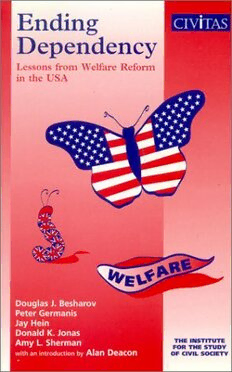
Ending Dependency : Lessons From Welfare Reform in the USA (Civil Society) PDF
109 Pages·2001·0.324 MB·English
Most books are stored in the elastic cloud where traffic is expensive. For this reason, we have a limit on daily download.
Preview Ending Dependency : Lessons From Welfare Reform in the USA (Civil Society)
Description:
There are few changes in social policy that have been so radical and so contentious as those made to the US welfare system in the 1990s. The reforms abolished the idea of a 'right' to welfare. Claimants were to be steered firmly into the workforce, with strict time limits for those claiming benefits--no more than two years at a stretch, and no more than five years in a lifetime. The reforms were denounced by some of President Clinton's former supporters, who warned of an increase in poverty, and of the impossibility of finding jobs for so many new entrants to the labour market. However, the welfare rolls have fallen by over half, while poverty rates have also fallen. The reforms have been a success. As Alan Deacon says in his introduction, this is a great time to be a conservative on welfare policy in the USA. In spite of this, the contributors to this volume resist the temptation to triumphalism and examine the extent to which the fall in welfare rolls have been attributably to other factors, such as the strength of the US economy, and the introduction of the Earned Income Tax Credit. Alan Deacon asks what lessons the US experience offers the UK. There are similarities between the language of New Labour and that of US welfare reformers, but the Blair government has shown itself unwilling to enforce work requirements, particularly on lone mothers. Until there is a consensus on the absolute requirement to work, the success of US welfare reform will elude the UK.
See more
The list of books you might like
Most books are stored in the elastic cloud where traffic is expensive. For this reason, we have a limit on daily download.
